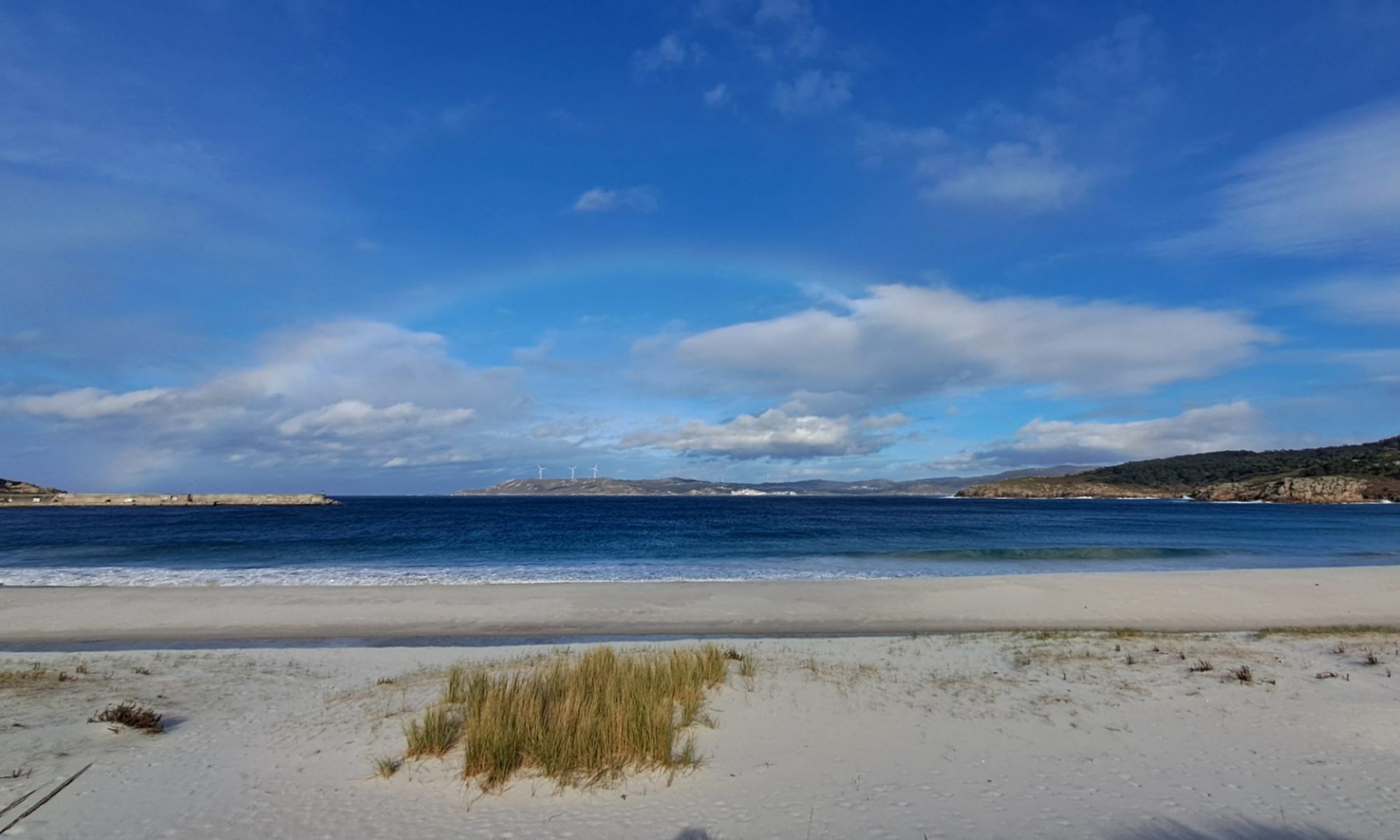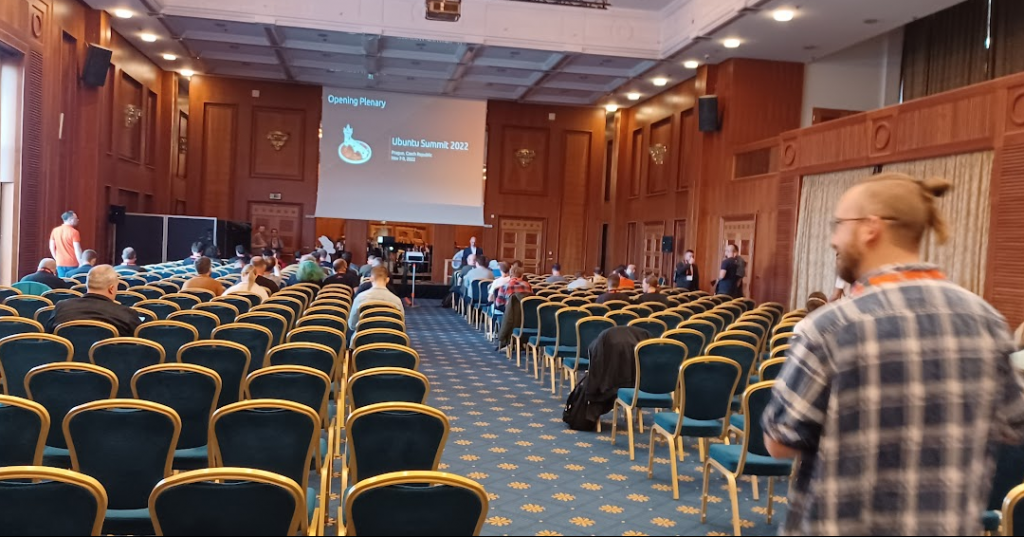
One of the lovelyest things about open community development is you can do it from home but you also get to travel to fancy places to meet your fellow devs and share ideas. Lockdowns stopped that for two years but with Akademy last month it felt like open tech life could return to a more fun state. Then came the return of a meeting that had last happened a decade ago, the Ubuntu Summit. A bunch of KDE devs were invited, me (who does KDE neon), Ade (who does Calamares installer), Scarlett (who does Snap packages), Aleix (who does Discover app installers), Harald (KDE neon), Luca (OpenRazor and hangs around KDE).
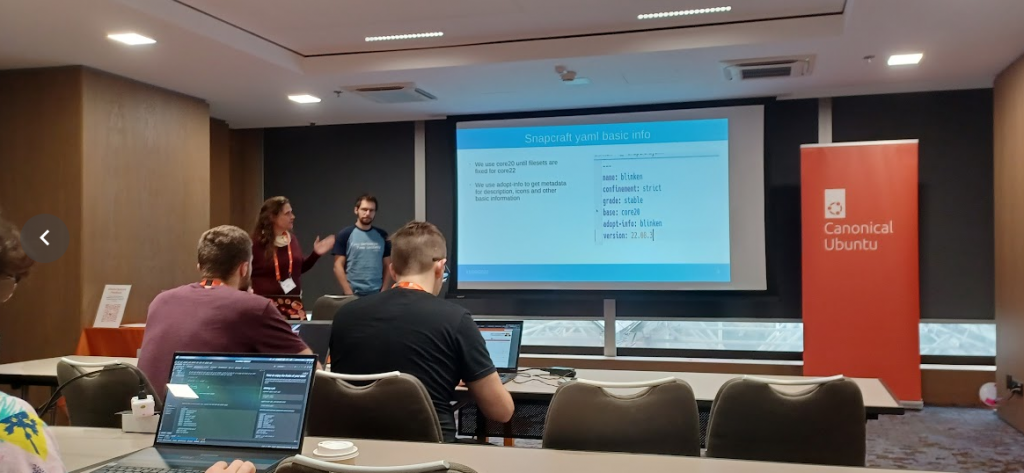
Unlike the old Ubuntu Developer Summits this wasn’t aimed at planning the next Ubuntu release, they had already spent the last two weeks in the same hotel doing that. This was just a fun sharing of ideas conference where people gave talks and workshops on what they were working on.
Me and Scarlett gave a lightning talk on KDE Snaps and Scarlett gave a workshop on KDE Snaps. KDE has over 100 apps in the Snap store, a great way to get KDE software promptly.
Ade gave a talk about his Calamares distro installer and compared it to Ubuntu’s installer which is being rewritten in Flutter. Harald gave talks on KDE neon and on secrets of KDE Plasma. Aleix spoke about the KDE community and what we do. Ade also talked about KDE Frameworks.
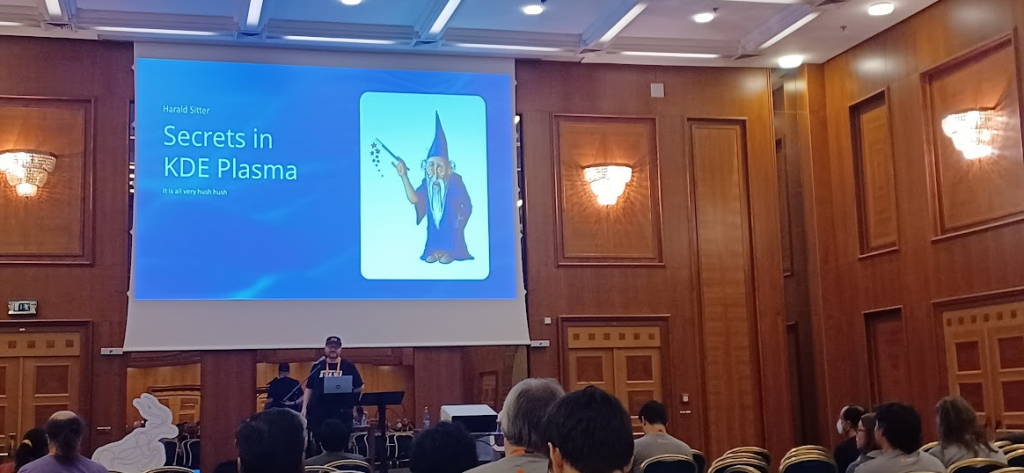
There was plenty of talks on Snaps, it’s how Canonical makes money where it’s used in embedded devices, if you can call a 10 ton steel press an embedded device. Adam Szopa works for KDE and also Canonical and he gave a talk on Linux gaming, I hear Canonical has a whole team just to get gaming working well. Canonical also makes money from Microsoft’s Windows Services for Linux (WSL) and there were a bunch of talks showing this off. Using JuJu to set up servers is another large project Canonical works on which had some talks. Flutter seems very fashionable, a rival to Qt that is gaining attention, it uses the Dart programming language and is designed for mobile devices but Canonical has been working with Google to port it to Linux desktops (using GTK).

It was great to catch up with Erich Eickmeyer who makes Ubuntu Studio and works for Kubuntu Focus selling laptops with Plasma. Ubuntu Studio ships with Plasma of course. I spoke to him about Wayland and he says the next release (for Ubuntu plus Plasma) is looking great for Wayland.
It was also great to meet Simon Quigley (tsimonq2) who does Lubuntu and has worked on Kubuntu. LxQt is a lightweight Linux desktop and probably one of the largest users of KDE Frameworks outside KDE, they use KScreen, KIdleTime, Solid, KWindowSystem and probably other Frameworks.

Canonical is reported to be profitable and hiring (after some “brutal times”) and spirits seem to be good. They have a community team now and are keen to engage.
There were also inspiring talks from e.g. a Zimbabwean developer talking about the challenges of taking software development on donkeys here he lives. Geopolitics is an interesting subject but one aspect I’ve not thought about before is how countries with a coastline can connect their internet directly to the world while countries without such as Zimbabwe are dependent on neighbouring countries to pass it through.
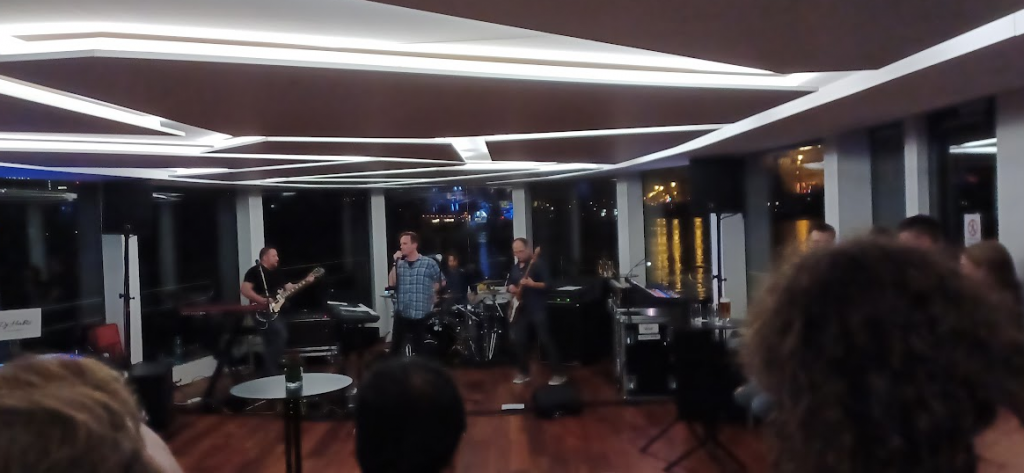
Lorenzo’s Music is an open source band who create on Github using Ubuntu Studio and Kdenlive. They gave a great performance on the river boat cruise under the Charles bridge in Prague.
Thanks to Canonical for sponsoring travel and helping us re-engage.
